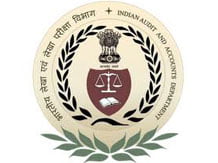
The Comptroller and Auditor General of India (CAG) has pointed out failures on the part of ChhattisgarhEnvironment Conservation Board (CECB) and industries to ensure compliance to environment laws and rules in the state.
The CAG report on General, Social and Economic (non-PSUs) for the year ended March 2015,observed that out of the 355 “test checked” small industries (total 4322), 50 were established without obtaining environmental consent from CECB.
“31 industries started production six months to five years before obtaining consent from CECB whereas 13 industries had started production 5-10 years before obtaining consent. Remaining six industries had started their production 10 years before obtaining CECB consent,” the report said.
“This indicates failure on part of the industries and the CECB to ensure compliance of environmental laws,” it added.
The reason for not obtaining the consent was mainly due to inadequate monitoring by CECB over the issue of consent, it said adding that “during exit conference, Secretary of Housing and Environment department had stated in November 2015 that necessary action would be taken in this matter.”
“The fact remains that the industries are operating without obtaining CECB consent,” the report added.
Similarly, a total of 174 industries had not renewed their environment consent even after a lapse of one to 174 months, the report said.
Moreover, irregular consent was issued to 42 coal-based power plants and sponge iron plants in the restricted area.
As a result, these industries had continued their operation without adhering to environmental laws and rules, it underlined.
The report also observed that no corrective action was taken by CECB despite adverse test reports on trade effluents of the industries.
“As per section 17 (f) of the Water Act 1974, State Board or any officer empowered by it should inspect sewage or trade effluents, work and plants for the treatment of sewage and trade effluents and review plans, specifications or other data relating to plants set up for the treatment of water, works for the purification thereof and the system for the disposal of sewage or trade effluents,” it said.
During 2012-14, only 1-2 per cent of trade effluents in Raipur, 2-7 pcin Durg, 0-53 pc in Korba districts were tested whereas no substantive tests were conducted in Raigarh district by the CECB.
“Further adverse test reports of trade effluents ranged from 35-45 percent in Raipur, 31-63 pc in Durg and 10-59 pc in Korba were noticed but no corrective action was taken by CECB,” the report said.
Thus, compliance to environment rules was not ensured by the industries, it added.
The CAG report underlined irregularities in implementation of measures in order to bring down pollution level at Korba, which is considered as a “critically polluted area”.
Central Pollution Control Board along with CECB had prepared (April 2010) ‘Korba Action Plan’ identifying seven major industries in the region and suggested actionable points such as upgradation of electrostatic precipitator, 100 per cent utilisation of fly ash generated and using coal of better quality to mitigate the pollution, it said.
“However, compliance to the points was not done by the identified industries. As a result, Korba remained a “critically polluted area” since the last five years,” the CAG said.
[Source:- Business Standard]




